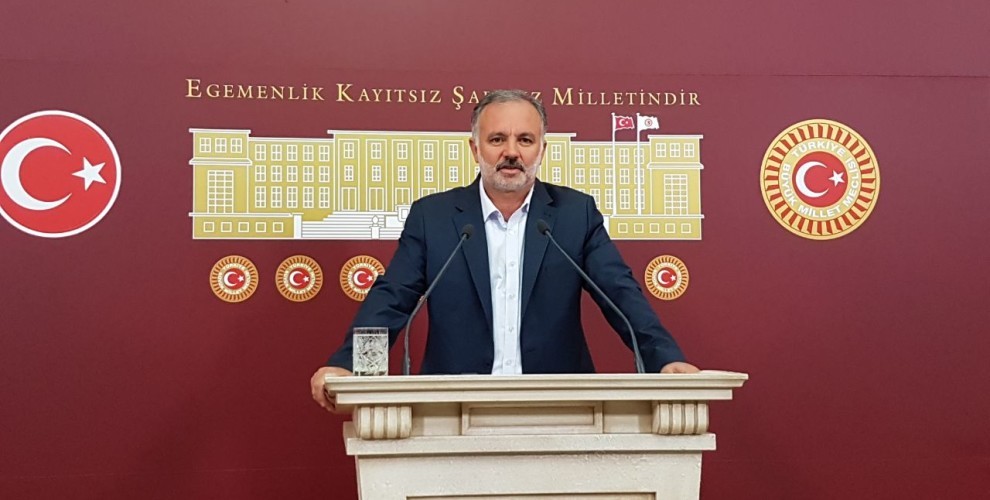HDP’s Bilgen: The new regulation will make OHAL permanent
Post-OHAL regulatory proposal will turn the State of Emergency into a permanent reality.
Post-OHAL regulatory proposal will turn the State of Emergency into a permanent reality.

Peoples’ Democratic Party (HDP) Parliamentary group vice president Ayhan Bilgen reacted to the post-OHAL (State of Emergency) regulatory proposal.
Bilgen said: “They are telling us that the 3-month extension period is over, but this time they will extend it for 3 years".
The HDP deputy held a press conference in Parliament to give the party’s assessment of the new situation and what it implies.
Bilgen noted that the proposal for the post-OHAL regulations to be discussed on Thursday at the Justice Commission would actually make the OHAL permanent.
"Although the government is saying that the OHAL is ending, the reality is that the regime is trying to make it permanent”.
Bilgen added: “In the second year after the 15 July [attempted coup], we ask two clear questions. The Justice Minister gives figures about the prosecutions directly related to the attempted coup. He talks about some five thousand people directly related to the attempted coup. There are tens of thousands of people. What will happen to those five thousand people, those judges, prosecutors, who have been victims of this repression? What will happen to the people arrested and sacked? There are rectors taken from their workplace, and if those rectors are guilty, what will happen to the academics and the students who have been expelled by them?"
Bilgen drew attention to developments in the economy saying that Turkey is facing a major crisis and that work should be done to relieve the markets. In fact, he said, even formal abolition of the State of Emergency is not enough to provide this relief.
The HDP deputy reiterated that proposals of regulations for the State of Emergency to be discussed by the Assembly are aimed at making the OHAL permanent. “The 3 months extension period will end to be replaced by a three years extension”, he said.
Answering the questions from journalists, Bilgen said: “It is clear that there is a gap between what was promised by the regime before the elections as to the OHAL and what is being decided now. Since the economy and foreign policy required this, clear messages were given before the election. But the regulation is something which will give authorities further than OHAL. When a politician, a representative of a democratic mass organization, a journalist or an academic goes to work or research a region, the governor may decide that he cannot enter the city”.
Bilgen pointed out that “This is a rule currently present in Israel. Regardless of who and which region it will affect, we must oppose it.”